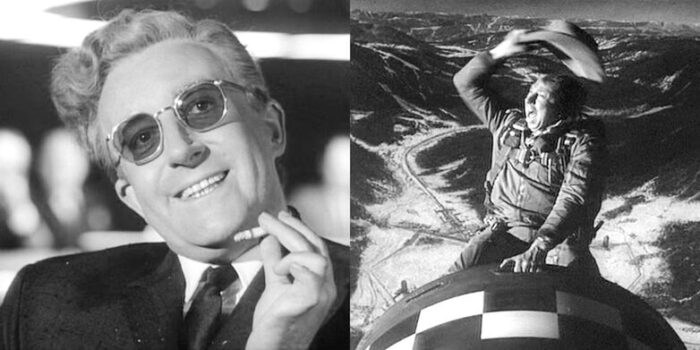Is Artificial Intelligence More a Weapon Than a Tool?
There’s a pattern in systems called an arms race, where two or more parties get stuck, each compelled to advance its military. When one does, all the others have to follow or risk being attacked or taken over. The pattern happens in other areas, but arms and the military is the prototypical example.
We’re all familiar with how this systemic pattern played out in the cold war, for example contributing to enough nuclear weapons to destroy all human life many times over, in the process diverting great amounts of wealth from helping people. One can argue if that wealth hadn’t been diverted and war began because one nation knew it could defeat the one arming itself less, but that argument doesn’t change that humans chose to do it.
I defy you to read Wikipedia’s definition of arms race without seeing the parallel with developing artificial intelligence, maybe substituting ‘AI’ for ‘military’:
An arms race occurs when two or more groups compete in military superiority. It consists of a competition between two or more states to have superior armed forces, concerning production of weapons, the growth of a military, and the aim of superior military technology. Unlike a sporting race, which constitutes a specific event with winning interpretable as the outcome of a singular project, arms races constitute spiralling systems of on-going and potentially open-ended behavior.
While AI can help some people directly, the overwhelming majority of applications of AI I’ve heard of help their work or some industrial process. It accelerates the economy, but not people. That is, AI helps everyone achieve their jobs more, but not so they can spend more time with loved ones or pursue passions or hobbies in their leisure time, of which they have less.

I’m sure I’m overstating myself or oversimplifying, so I welcome people showing me examples of AI directly making people happier, safer, or more secure without also destabilizing them in some other, bigger way. Like it may help a shy person have someone to talk to, but at the cost of that person not learning to overcome their shyness. It may help someone make a better presentation or write a better paper, or save time doing these things, but at the cost of them not learning what writing the paper was for. The time saved making the presentation is taken away because it’s an arms race: the competition used AI to make their presentation to the customer too, so everyone has to work harder to keep up.
People like to point out how they used AI in some way to help them, but I hear mostly examples of it helping them to do something not inherently rewarding, like singing or gardening, but to achieve something not inherently rewarding, like to write a paper or some part of it when the work to create the writing was the point. It’s inherently rewarding. I don’t assign writing papers in my classes (I do assign writing reflections), but the point of writing a paper isn’t the paper. It’s the writing and the resulting learning.
There are more than one arms races in AI
There is also the arms races between AI makers, that they have to keep improving their offerings, which is why AI is projected to contribute something like 10 percent of humanity’s environmental impact soon.
I’m just writing a blog post, not a peer-reviewed paper, so I hope you’ll forgive me just stating the beginnings of a hypothesis, but I believe there’s something there.
EDIT: Well what do you know? After writing my piece I scrolled down the Wikipedia page on arms race to see it has a page Artificial intelligence arms race. That page begins:
A military artificial intelligence arms race is an economic and military competition between two or more states to develop and deploy advanced AI technologies and lethal autonomous weapons systems (LAWS). The goal is to gain a strategic or tactical advantage over rivals, similar to previous arms races involving nuclear or conventional military technologies. Since the mid-2010s, many analysts have noted the emergence of such an arms race between superpowers for better AI technology and military AI, driven by increasing geopolitical and military tensions.
Read my weekly newsletter

On initiative, leadership, the environment, and burpees